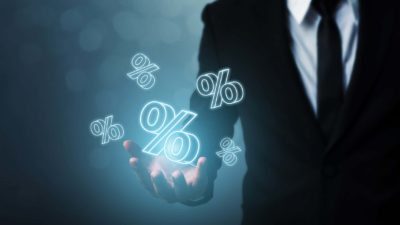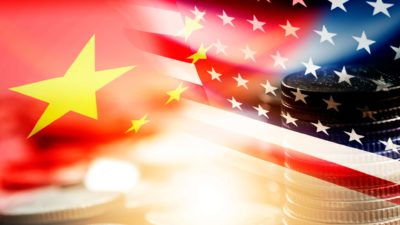Although it's only Tuesday, this week has, thus far at least, been one of those weeks that seems to have dragged on forever. Yesterday, ASX investors were hit with a freight train, as the newly-announced tariffs from the Trump Administration filtered down into our local markets.
These tariff plans, which involved a 15% tariff on both Canadian and Mexican imports into the United States, spooked investors, to put it lightly. The local market tanked by a hefty 1.8% yesterday, a fall that reflected the reaction over on Wall Street.
Today, Australians woke to the news that, shockingly enough, these tariff plans would not be going ahead (just yet, anyway!). Lo and behold, the markets are back up today.
This whole kerfuffle might have ASX investors wondering what all the fuss is about here. Well, today, let's dig into that question.
What are tariffs?
If you did high school economics, you might remember tariffs from the study of the post-war global order.
Tariffs are a type of tax that a government can levy. They are specifically applied to goods that are imported into an economy, either from a particular market, or to all markets.
Crucially, the tariff is paid by the customer who imports the goods, not by the producers themselves. So, say you buy a television for $1,000, and the Australian Government has a 10% tariff in place on imported electronic goods. When you take your TV to the proverbial counter, the producer gets their $1,000. But your bill will be $1,100, with the government taking that extra $100 as a tax.
Tariffs were a very popular way for governments to raise revenue in the past. Many governments liked how tariffs could raise revenue, while at the same time providing a boost to domestic agricultural or manufacturing sectors.
However, global tariffs have been coming down for decades. Today, most advanced economies levy almost no tariffs, and instead rely on other sources of taxation to fund government services.
This has been done because conventional economic theory dictates that tariffs, as a general rule, are highly inefficient and damaging taxes. Our chief investment officer Scott Phillips discussed this "ultimate lose-lose situation" in detail yesterday. But in a nutshell, tariffs distort the natural economic incentives for a country to produce the goods and services it is most efficient in producing.
There's a reason why Australia doesn't have a local car industry anymore, for example. Due to a range of factors, it simply doesn't make economic sense to manufacture cars here at the expense of other goods and services that can be done more efficiently.
Why are these American taxes bad for ASX shares?
Now if the government implemented steep tariffs on cars, this could change. But tariffing imported cars would put a rocket under car prices, all so we can buy higher-priced locally made vehicles. Understandably, successive governments have chosen not to go down this path.
But US President Donald Trump is. Or at least was, for a day.
Trump seems to disagree with the conventional economic wisdom when it comes to tariffs. He has stated that he wants the US to go back to collecting huge revenue streams from taxing imported goods. These taxes will, at the same time, supposedly encourage a boom in the local American manufacturing sector.
I won't discuss the merits of Trump's position any further, except to emphasise that they do not align with what most economists think. Their collective position is that broad tariffs like those Trump is proposing usually result in lower economic growth and higher rates of inflation.
That combination is obviously not good for the global economy. It could even lead to higher interest rates all around, which would stifle growth even further.
The 25% tariffs that Trump proposed to slap on both Mexico and Canada are very high by historical standards, given that there are currently almost no tariffs in place between the three North American economies. Imposing a 25% hike overnight would have caused massive economic disruption.
This is probably why both the American and Australian stock markets tanked when this news came through. And why they are rebounding today with the revelation that the tariffs would, after all, not go ahead.
The market seems to be taking the economists' side in this tariff debate.
Foolish takeaway
This chapter of the new 'tariff wars' seems to be over. Saying that, Trump has called 'tariff' the best word in the dictionary. So don't be surprised if it comes up again.









